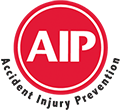Lab packing is the proper method of packing small containers containing hazardous chemicals meant for disposal. The lab packing has to be executed by an expert trained and knowledgeable in regulations pertaining to safe transportation and disposal of hazardous chemicals at approved facilities.

Lab packing is the proper method of packing small containers containing hazardous chemicals meant for disposal.
The lab packing has to be executed by an expert trained and knowledgeable in regulations pertaining to safe transportation and disposal of hazardous chemicals at approved facilities.
Chemical waste generating organizations like warehouses, laboratories, hospitals, schools, medical facilities, industries, or operation uses chemicals like acids, bases, reagents, salts, solvents, thinners, paints, dyes, inks, cleaners, strippers and other compounds etc.
These chemicals are contained in small containers (size of 20L pail or smaller). Some of these containers are expired; contaminated, partially used, leaking or just no longer needed and therefore needs to be disposed.
Careless handling the disposal including throwing in garbage, pouring in drain etc. leads to criminal penalties under the regulatory environmental laws.
This 4 hour Lab Packing Training course is designed to foster and develop a professional, willing and co-operative attitude towards safe disposal of hazardous materials.
Course Objectives:
Compatibility groups
Proper handling
Packaging and labeling procedures
Transportation procedures
Container inspections
Packing groups
Transportation of Dangerous Goods (TDG) overview and
Proper lifting techniques
The provision of appropriate health and safety training is an integral part of all health and safety programs and is a key component of due diligence in the workplace. Employers have an obligation.
To properly train their employees and supervisors to ensure that they are competent to perform their jobs, recognize the hazards of the job and understand how to protect themselves from these hazards.
© 2025 coursetakers.com All Rights Reserved. Terms and Conditions of use | Privacy Policy